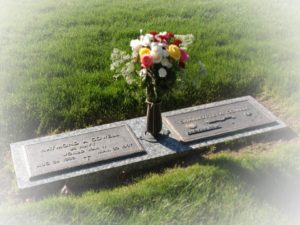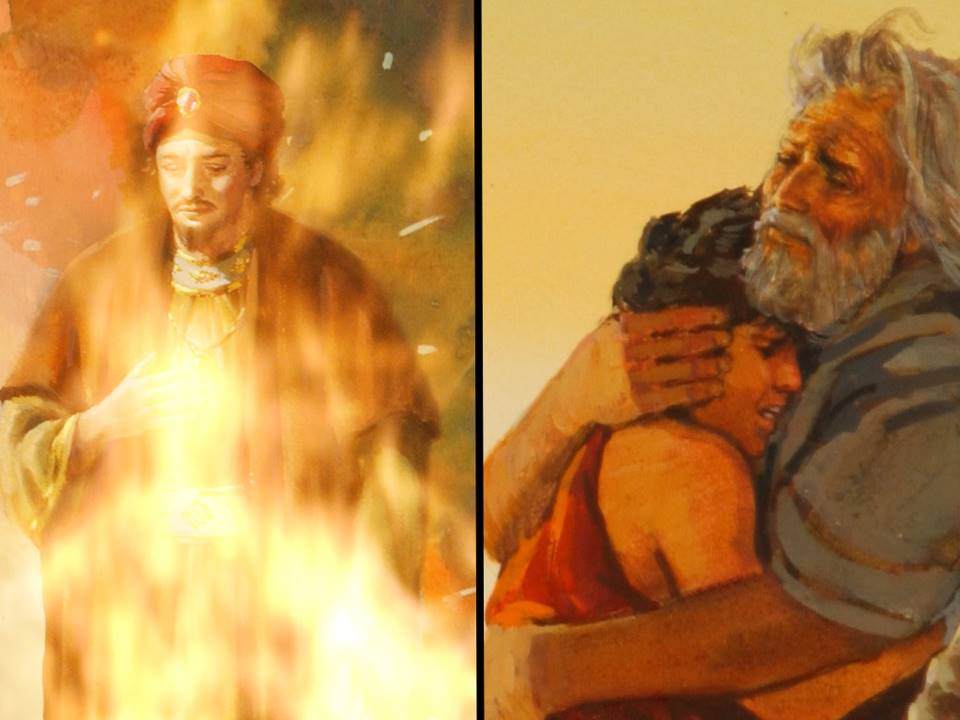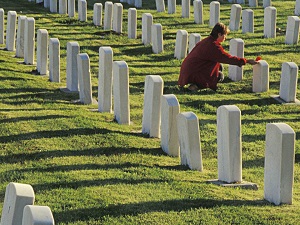
'For this reason the gospel was preached also to those who are dead ': An exposition on Peter's words in 1 Peter 4:6

Samuel Smith
23 Jan'19
5
LESSON 8
FOR THIS REASON THE GOSPEL WAS PREACHED ALSO TO THOSE WHO ARE DEAD: AN EXPOSITION ON PETER'S WORDS IN 1 PETER 4:6
You are welcome to another edition of Insights from God's Word, a Bible study programme that is committed to sharing God's Word by allowing the Bible to speak for itself.In this edition, we continue with our series on The Truth About Death. In this study, I want us to consider the topic: "For this reason the gospel was preached also to those who are dead...": An exposition on Peter's words in 1 Peter 4:6. The complete message in this text reads: "For this reason the gospel was preached also to those who are dead, that they might be judged according to men in the flesh, but live according to God in the spirit" (
A) One of the popular interpretations in regard to the above text within Christendom is that when Christ died, He went to preach to some dead spirits in hell. As we noted in our previous study, the 4th stanza of the apostle's creed (which reads: "Suffered under Pontius Pilate; was crucified, dead and buried: HE DESCENDED INTO HELL: Capital Emphasis Added) has served as a catalyst in promoting this teaching within mainstream Christian denominations today.
B) But beloved, this teaching that when Christ died He went to preach to those who are physically dead is contrary to the principle of the unity of the entire Scriptures (see
Since the popular interpretation of
C) Friends, for us to obtain a clear understanding of this text, we need to consider among other things the following:
i) the original audience or recipients of Peter's first epistle;
ii) the entire passage within which the difficult text is positioned.
From the internal evidence within the first epistle of Peter, we gather the fact that the original recipients of this letter were new believers who were scattered in various parts of Asia Minor (see
With this background in hand, we will now proceed to consider an analysis of the entire passage within which our key text is found:
C1) 4:1 "Therefore, since Christ suffered for us in the flesh, arm yourselves also with the same mind, for he who has suffered in the flesh has ceased from sin,"
Key Explanation: Even as Christ has suffered for us in the flesh, so should we also expect to suffer (
C2) 4:2 "that he no longer should live the rest of his time in the flesh for the lusts of men, but for the will of God."
Key Explanation: The suffering we have gone through for the sake of Christ should inspire us to refrain from our past way of life, and rather live according to the will of God.
C3) 4:3 "For we have spent enough of our past lifetime in doing the will of the Gentiles - when we walked in lewdness, lusts, drunkenness, revelries, drinking parties, and abominable idolatries."
Key Explanation: Before we came to know the Lord, we also committed the various sins that the ungodly also commit.
C4) 4:4 "In regard to these, they think it strange that you do not run with them in the same flood of dissipation, speaking evil of you."
Key Explanation: Because we were formerly together with the ungodly in pursuing evil practices, they find it difficult to believe that now we have separated ourselves from them in pursuing such evil practices. Since we do not follow them anymore to indulge in the pleasures of sin, they now find occasion to speak evil about us.
C5) 4:5 "They will give an account to Him who is ready to judge the living and the dead."
Key Explanation: The ungodly who find pleasure in speaking evil of God's children will one day give an account of this behaviour to Christ, the One who has being appointed by God to judge the living and the dead at His appearing (see
C6) 4:6 "For this reason the gospel was preached also to those who are dead, that they might be judged according to men in the flesh, but live according to God in the spirit."
Key Explanation: It is important to note that the key word DEAD as used in this verse does not denote people who are physically dead. Rather, the word denotes the spiritual condition of people who live in sin. I have outlined below a few examples of how the word DEAD has been used in such a manner in other places of Scripture:
i) "1 And you He made alive, who were DEAD IN TRESPASSES AND SINS, 2 in which you once walked according to the course of this world, according to the prince of the power of the air, the spirit who now works in the sons of disobedience" (
ii) "And you, BEING DEAD IN YOUR TRESPASSES and the uncircumcision of your flesh, He has made alive together with Him, having forgiven you all trespasses" (
iii) "Therefore He says: "Awake, you who sleep, Arise from the DEAD, And Christ will give you light" (
iv) Concerning the prodigal son, Christ made the following remark: "And he said to him, ‘Son, you are always with me, and all that I have is yours. It was right that we should make merry and be glad, for your brother was DEAD and is alive again, and was LOST and is found" (
Friends, once we come to understand the true meaning of the word DEAD as used in verse 6 of our key passage for this study, the message Peter sought to communicate to the new believers in Asia Minor begin to come together. With this important insight in hand, let us consider the verse
4:6 "For this reason the gospel was preached also to those who are dead (those who lived in sin), that they might be judged according to men in the flesh (spoken evil of by people in the world), but live according to God in the spirit."
From this text, we can derive the following:
i) It was necessary for the gospel to be preached to the dead (that is, people who lived in sin) so that they could repent from their dead works (see
ii) As these people repented from their sinful behaviours, they were judged or spoken evil of by their neighbours who continued to remain in the world.
iii) Peter's admonition for these believers was that despite the ongoing judging or persecution which they encounter from the ungodly, they should continue to live according to God's will in the Spirit.
Beloved, this explanation we have derived from the verse
4:13 but rejoice to the extent that you partake of Christ's sufferings, that when His glory is revealed, you may also be glad with exceeding joy.
4:14 If you are reproached for the name of Christ, blessed are you, for the Spirit of glory and of God rests upon you. On their part He is blasphemed, but on your part He is glorified.
4:15 But let none of you suffer as a murderer, a thief, an evildoer, or as a busybody in other people's matters.
4:16 Yet if anyone suffers as a Christian, let him not be ashamed, but let him glorify God in this matter.
4:17 For the time has come for judgment to begin at the house of God; and if it begins with us first, what will be the end of those who do not obey the gospel of God?
4:18 Now "If the righteous one is scarcely saved, Where will the ungodly and the sinner appear?"
4:19 Therefore let those who suffer according to the will of God commit their souls to Him in doing good, as to a faithful Creator."
(
i) the experience of suffering that all those who separate themselves from the world will go through in the hands of the ungodly;
ii) and how believers are to respond in a positive manner.
Exhortation: "10 Blessed are they which are persecuted for righteousness' sake: for theirs is the kingdom of heaven. 11 Blessed are ye, when men shall revile you, and persecute you, and shall say all manner of evil against you falsely, for my sake. 12 Rejoice, and be exceeding glad: for great is your reward in heaven: for so persecuted they the prophets which were before you" (
NOTE: Unless otherwise specified, all Scriptural References are from the New King James Version of the Bible.
In our next study, we will consider the topic: Can the dead communicate with the living? Exploring what the Bible says about spirits, ghosts, demons and the dead. The Bible Study references for this study are
Stay blessed and keep shining for King Jesus.
Maranatha!
Powered by White Throne Ministries












